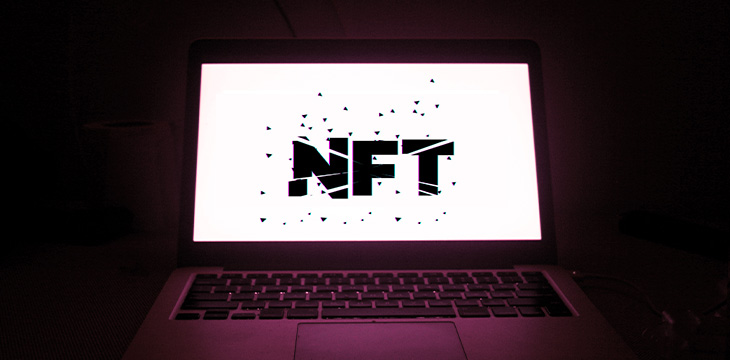Home » Business »
A South Korean court has ruled that non-fungible tokens (NFTs) are not protected under local laws because of their speculative nature.
Yonhap News Agency reported that the court ruling confirmed the ban on the domestic distribution of Play-to-Earn (P2E) games in the country. The ruling is made in connection with P2E game the lawsuit filed by “Five Stars for Klaytn” developer SkyPeople against South Korea’s Game Rating Administration Committee for failing to issue an age rating for the P2E game.
The court upheld the lower court’s decision that gaming items converted to NFTs amounted to “gifts prohibited under the Game Industry Act” and that dealing in them can be construed as promoting speculation. The court ruled that SkyPeople violated Article 28 of the Game Industry Promotion Act.
The P2E game developer put up a valiant fight against the Game Rating Administration Committee, saying that converting gaming items to NFTs amounts to a mere recording of ownership information on the distributed ledgers. SkyPeople argued that converting digital tokens does not amount to speculation, but the court disagreed with their submission.
The court upheld the gaming regulator’s decision not to grant an age rating for the game, saying that “the reality is that social consensus on the legal nature and regulatory method of NFTs has not been properly achieved.”
The court’s decision has been described as a watershed moment for P2E games as it is the first time the court is giving an express judgment against the industry. SkyPeople told reporters that it would be filing an appeal against the decision after consultation with its lawyers, but the gaming commission regulator hoped that “the same logic can be applied to other P2E games that produce tokens or coins.”
Another game developer Nattris is challenging the regulator for failing to issue an age rating for its P2E game Infinite Breakthrough Three Kingdoms Reverse. Parties are holding their breaths ahead of the Administrative Court’s ruling on January 31.
South Korea is stifling P2E gaming
Since the ban against P2E gaming to prevent speculation among players, several South Korean game developers have left the country to release their own P2E games. Game developer Wemade’s overseas sales added $136 million to the firm’s balance, contributing over half of the total sales.
Enthusiasts are optimistic that the restriction on the game will be lifted sometime in 2023 following the positive stance of the country’s new president towards the virtual currency industry.
Wemade CEO Henry Chang told reporters that “the new government came a hundred days ago and the current government considers modifying the law to allow blockchain games in Korea.”
Despite the initial enthusiasm, the government has kept a radio silence over its plans for the gaming industry, opting to make inroads into the metaverse.
Watch: Play2Earn with BSV Blockchain
New to Bitcoin? Check out CoinGeek’s Bitcoin for Beginners section, the ultimate resource guide to learn more about Bitcoin—as originally envisioned by Satoshi Nakamoto—and blockchain.
The ConsenSys layoffs will affect 96 employees across several teams, which CEO Joseph Lubin says was caused by certain “poorly behaved” centralized actors.
After its second reading of the Financial Services and Markets Bill, members of the British House of Lords have voiced concerns that it does not go far enough and that a whole new regulatory approach will be required.
Under the latest regulations, VASPs are mandated to create a digital wallet management system, a framework for securing wallet keys, and develop a contingency plan in case of a system anomaly.
Join the official Bitcoin SV Discord channel:
www.discord.gg/bsv

